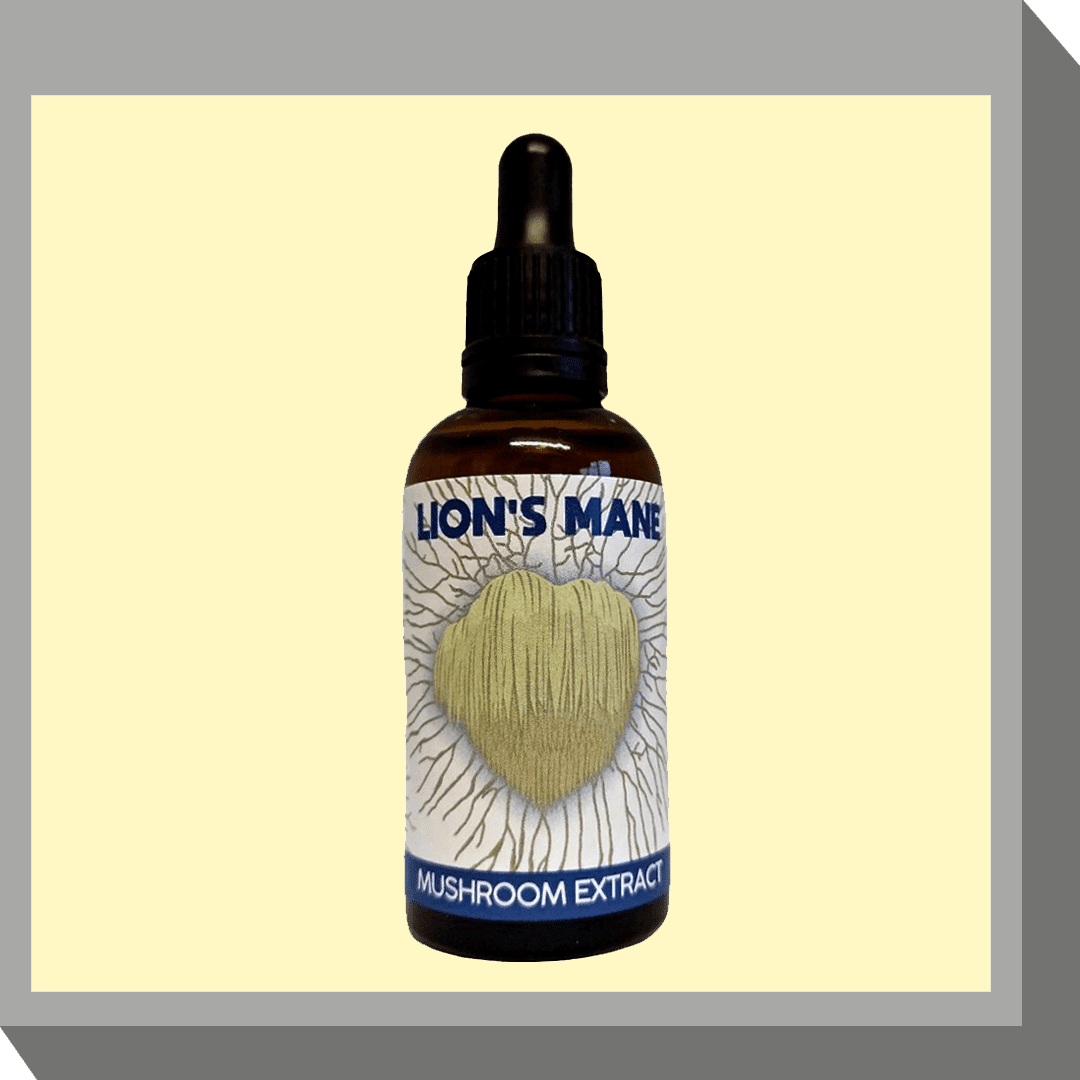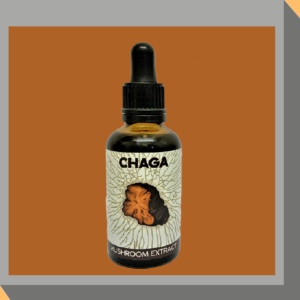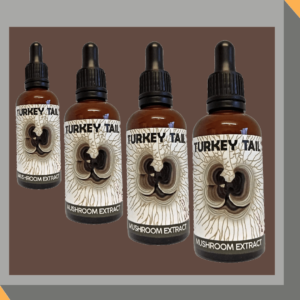Description
What is Lion’s Mane (Hericium erinaceus) for?
Improve or maintain your brain function in our digital world without trading-in your mental health.
Suggested Dose: Take 0.5ml (10 drops) to 1ml (20 drops) 1-2 times a day
The product is not intended to treat, cure or prevent any illness or disease and is not a substitute for a balanced diet
- Do not exceed the suggested dose
- Take it with your favourite drink or directly under the tongue
- Only to be taken orally
- Do not use for infants or children
- Do not use for animals
- Keep out of reach of young children
- Do not use when pregnant
Testimonials
Danii sent this email:
“After learning about the potential benefits I purchased Lions Mane extract. Work has been pretty stressful, and I was feeling a little overwhelmed and anxious. I noticed the effects of taking 1ml a day of Lion’s mane fairly quickly. My mood was more level and I felt more equipped to cope with the pressures of work. I’ve now been taking it regularly since then and the effects have remained!
I’ve also recommended lions mane extract to a friend who was suffering with health anxiety and she has also noticed the positive effects””
Suggested Benefits
In 1956 Nobel Laureate Rita Levy-Montalcini isolated nerve growth factor (NGF) for the first time. NGF is involved in regulating the growth of certain neurons. Studies have shown that bioactive compounds found in Lion’s Mane can stimulate nerve growth factor proteins in the brain.
Cognition
A Japanese study in 2015 demonstrates that oral intake of Hericium erinaceus (Lion’s Mane) for 12 weeks, significantly improves cognitive functions.
https://pubmed.ncbi.nlm.nih.gov/31413233/
Memory
An Italian / Japanese study in 2019 concludes that supplementation with Lion’s Mane significantly improves recognition memory in aging mice.
https://www.mdpi.com/2072-6643/11/4/715
Alzheimer’s disease
A Swiss study in 2021 investigates how Hericium erinaceus decreases the pro-oxidative and pro-inflammatory hippocampal alterations induced by Alzheimer’s.
https://pubmed.ncbi.nlm.nih.gov/34829535/
NGF synthesis
A Malaysian study in 2013 shows that Lion’s Mane induces NGF synthesis.
https://pubmed.ncbi.nlm.nih.gov/24266378/
Depression and Anxiety
A Japanese trial in 2010 demonstrates that Lion’s Mane may help alleviate depression and anxiety.
https://www.jstage.jst.go.jp/article/biomedres/31/4/31_4_231/_pdf/-char/en
Gut and Microbiota
A Greek clinical trial in 2020 demonstrates that Lion’s Mane increases the production of short-chain fatty acids with many beneficial effects on health.
https://pubmed.ncbi.nlm.nih.gov/32570735/
What are the negative effects of Lion’s Mane?
A study led by Hariprasath Lakshmanan from the ‘Mushroom Research Centre, Faculty of Science at the University of Malaya’, focusing on administering increasing doses of lion’s mane extract showed that consuming moderate amounts of these mushrooms is safe for rodents. Nevertheless, the safety and efficacy of lion’s mane supplements are not as clear for humans since these supplements are not subject to the same regulations as food and drug products.
Although, even high doses of lion’s mane mushrooms did not result in any harmful effects on rodents, it is worth noting that more research is needed to fully understand the potential benefits and risks associated with Lions Mane tinctures.
Is Lion’s Mane good to take every day?
There is no one-size-fits-all answer to this question, as Lion’s Mane may have different effects and can interact with various medical conditions or medications. Lion’s Mane is generally very safe. Lion’s Mane tinctures from Foresthug contain alcohol, which means that certain groups of people may need to exercise caution or avoid taking supplements altogether, including:
- Pregnant or breastfeeding women: Certain supplements may be harmful to a developing fetus or nursing baby.
- Children: Children may not need supplements, and some supplements may not be safe for their growing bodies.
- People with certain medical conditions: Some supplements can interact with medications or worsen certain medical conditions. For example, individuals with high blood pressure should avoid supplements that raise blood pressure.
- People taking certain medications: Some supplements can interfere with medications, making them less effective or causing unwanted side effects.
- Those with allergies or sensitivities: Individuals with allergies or sensitivities to certain foods or ingredients may need to avoid supplements containing those ingredients.
It is always important to talk to a doctor or qualified healthcare provider before starting any new supplement regimen, especially if you fall into one of these categories.
When should you not take Lion’s Mane?
Lion’s Mane tincture is a liquid extract of the lion’s mane mushroom that is used as a dietary supplement. While generally considered safe for most people, there are a few situations where you may need to exercise caution or avoid taking lion’s mane tincture:
- Allergies or sensitivities: If you are allergic or sensitive to mushrooms, you should avoid lion’s mane tincture.
- Surgery: Lion’s mane tincture may affect blood clotting and increase the risk of bleeding during or after surgery. It is recommended to stop taking lion’s mane tincture at least 2 weeks before any scheduled surgery.
- Medications: Lion’s mane tincture may interact with certain medications, including blood thinners and diabetes medications. If you are taking any medications, talk to your doctor before taking lion’s mane tincture.
- Pregnancy and breastfeeding: There is not enough information about the safety of lion’s mane tincture during pregnancy and breastfeeding. It is best to avoid taking it during these times.
- Children: There is limited research on the safety of lion’s mane tincture for children. It is best to consult a doctor before giving it to a child.
If you are unsure whether lion’s mane tincture is right for you, it is always best to consult a doctor or qualified healthcare provider before taking it.
More Info
Higher Classification: Hericium
Scientific name: Hericium erinaceus
We love the Internet, but the digital era has its’ downsides, from chronic stress, and anxiety to constant distractions and the inability to focus. There has been a renaissance for medicinal mushrooms, foraging as a hobby and forest bathing to improve health and wellbeing.
The Japanese name for Lion’s Mane is Yamabushiitake, named after a group of hermitic, spiritual monks (the Yamabushi), who believe that the highest truth exists in nature. Yamabushis are the original forest bathers. Some of their rituals are shrouded in secrecy, apparently Lion’s Mane is used during their meditative practices, such as standing under a waterfall whilst meditating.





